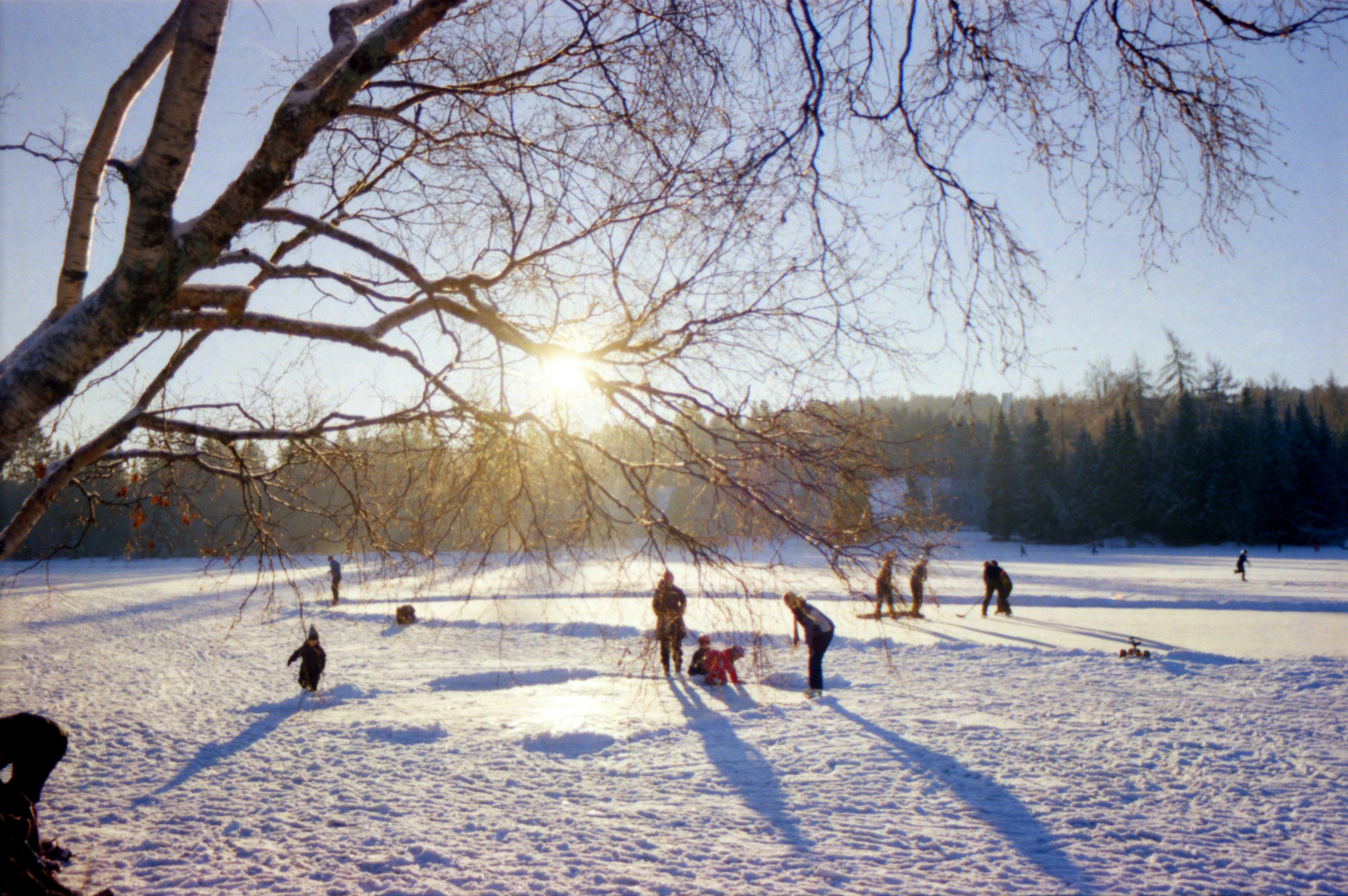When does winter start? The first day of winter 2023
Get those warm blankets ready...


Parenting advice, hot topics, best buys and family finance tips delivered straight to your inbox.
You are now subscribed
Your newsletter sign-up was successful
When does winter start? As the nights have well and truly drawn in following a brighter autumn, we look at when the first day of winter will be in 2023.
There's definitely a chill in the air, and after we celebrate Halloween and start thinking about Christmas, we know that winter is well and truly here. If you do have the festive season on your mind, you might want to take in our handy top Christmas toys guide for both boys and girls, for some tried and tested inspiration.
Others might be wondering if it will snow in the UK this winter, a question that is asked year after year, as the nation always appears woefully underprepared for the appearance of the freezing white stuff. If you're wondering when to pull out your warmest clothes, and peruse the seasonal delights at your favourite coffee shop, let's delve into when winter will actually get underway.
When does winter start? The first day of winter 2023
This year, meteorological winter begins on Friday, December 1, 2023, ending on Thursday, February 29, 2024. Ordinarily, winter would end on February 28, but next year there's an exception as it falls on a leap year.
However, how the first day of winter is defined depends on whether you are referring to the astronomical or meteorological winter. According to the Met Office, the astronomical calendar determines seasons due to Earth's position as it rotates around the Sun. In this instance, astronomical winter begins Friday, 22 December 2023 and ends on Wednesday, 20 March 2024.

This natural rotation of Earth orbiting the sun defines our seasons with two solstices and two equinoxes, with the Earth’s tilt and the sun’s alignment over the equator determining when these occur. In the Northern Hemisphere, the summer solstice happens around June 21, and the winter solstice around December 22. Spring equinox takes place around March 21, and the autumnal equinox on or around September 22. For Southern Hemisphere dates, the seasons are reversed but the dates are the same.
Meteorologists break down seasons into groups of three months based on the calendar, and annual temperature cycle - hence the name meteorological seasons. Meteorological spring in the Northern Hemisphere covers March, April, and May, with meteorological summer including June, July, and August. Meteorological autumn covers September, October, and November, with the winter including December, January, and February.
Parenting advice, hot topics, best buys and family finance tips delivered straight to your inbox.
What happens during a Winter Solstice?
The Winter Solstice is the point where sun's path in the sky is farthest south. The sun will travel the shortest path through the sky, resulting in a day with the least amount of sunlight and the longest night.
Most people will already have noticed the days become shorter on the on the run up to the Solstice. From that point onwards, the days become longer in the time leading to Summer Solstice and the longest day of the year.
According to Space.com, during the 2023 Winter Solstice the Northern Hemisphere will have approximately 7 hours and 14 minutes of daylight. At 10:27 p.m, the Earth's axis will be tilted the farthest away from the sun. They add that without this axial tilt, the sun would stay directly about the Equator, resulting in the planet receiving the same amount of light all year round.

Do clocks go back in winter UK?
Clocks go back in the autumn in the UK. In 2023, this will take place on October 29, at 2am.
At the start of the 20th century, a successful campaign argued in favour of changing the clocks during the summer to avoid wasting time in the morning. As part of daylight savings time, clocks are also changed in autumn. However, there have been arguments that modern society can scrap daylight savings, as they're no longer required.
Some have raised safety concerns about people being out and about during darker mornings, and suggest that now most people live in homes with sufficient lighting, increasing daylight doesn't mean as much as it used to. From an environmental perspective, some worry that during the summer, longer evenings encourage excess energy consumption - staying up longer could mean using appliances later into the evening that would ordinarily have been switched off earlier.
Interesting facts about winter
- According to the Met Office, the coldest temperature ever recorded during a UK winter was -27.2°C. This has been recorded 3 times, once in 1895, again in 1982, and most recently in 1995. All recordings were measured in the Scottish Highlands.
- The winter of 1963 is one of the coldest on record. One of the coldest since 1740, temperatures consistently lower than -20°C were found. This began just before Christmas in 1962 with frequent snowfall until early March 1963.
- The snowiest city is Aomori City in northern Japan. Residents are subjected to more snowfall there than any large city on Earth.
- Some snow is powdery, and some sticks together. Snowflakes falling through a cool and dry atmosphere will be small and powdery. Wet snow falls through warmer temperatures, causing flakes to stick together and form heavy and sticky flakes.
- Snowballs sometimes form by themselves. In northwest Siberia, giant snowballs washed up on a beach along the Gulf of Ob. They were formed naturally by the rolling motions of wind and water, and some were up to 3 feet wide.
- Some reindeer can see in the dark. Those living above the Arctic Circle have total darkness for several weeks of the year. They have adapted to this with a small area behind their retinas - the tapetum lucidum - changing from a gold colour in summer to blue in winter. This allows the detection of ultraviolet light and ability to see in the dark.
- Most snowflakes range in size from that of a penny to the width of a human hair. However, some people in Montana once claimed to have seen some measuring roughly 15 inches wide, falling from the sky.
If you're looking for Elf on the Shelf ideas this winter, look no further. It wouldn't be the festive time without the annual Cbeebies Christmas panto - we have everything you need to know about the 2023 instalment. If you need some Christmas games inspiration for all the family to play together, take a look at our tried and tested favourites.

Lucy is a mum-of-two, multi-award nominated writer and blogger with six years’ of experience writing about parenting, family life, and TV. Lucy has contributed content to PopSugar and moms.com. In the last three years, she has transformed her passion for streaming countless hours of television into specialising in entertainment writing. There is now nothing she loves more than watching the best shows on television and sharing why you - and your kids - should watch them.